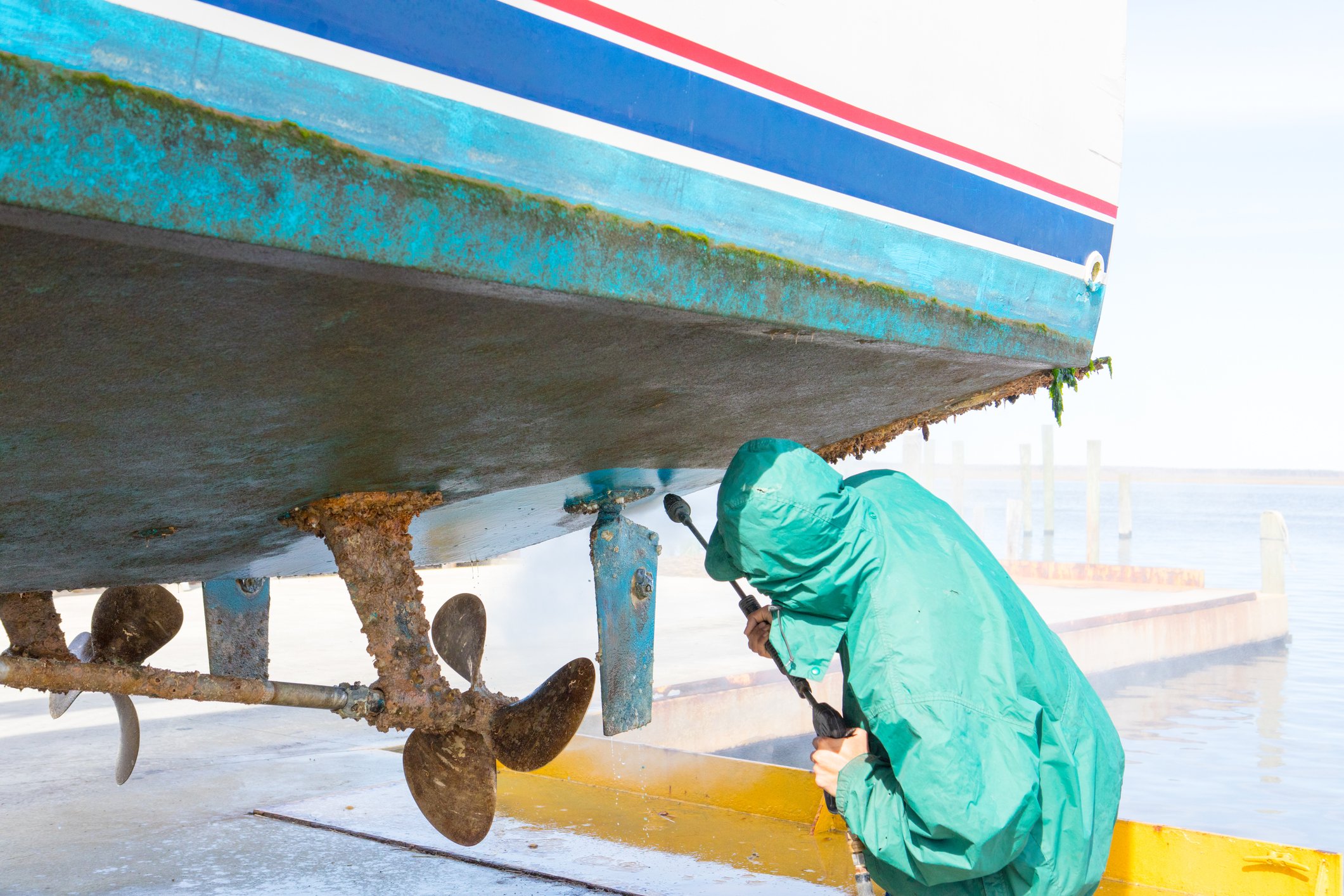May 14, 2018 by Boat Planet
Boat cleaning seems like a safe and straightforward task, and most of the times it is. But when you are working in a wet, slippery environment with chemicals and (sometimes) electricity, it is best to not to do it alone. Accidents happen, after all. And when they happen to a person with nobody else around, the consequences can be tragic.
Read on to see what dangers you have hopefully avoided while cleaning your boat alone up to this point, and then pledge not to do it again.
Slips And Falls
Slips and falls result in a number of emergency room visits each year, and working on a sloping, wet, soapy boat deck is one way to increase the percentage even more. You could trip and hurt yourself, tumble into the drink, or both. Who is going to help you if you cannot drive yourself to the hospital or climb out of the water?
Even on land, clambering in and out of a boat on a trailer or using a ladder to get to and from a vessel on blocks could be asking for trouble. A friend can provide a boost or hold that ladder steady. Having company also means having a second set of hands so you do not have to overextend your reach or move heavy things by yourself, further reducing the chance of injury.
Fumes, Splashes, And Spills
No matter how much you try to use green marine products, hazardous chemicals are sometimes brought on board in the guise of household cleaners. Bleach is a great example. It is commonly used yet is one of the most hazardous chemicals out there.
Mixing cleaning products that contain bleach and ammonia can cause severe lung damage or can even be fatal. Adequate ventilation is a major concern. Mists, vapors, and gases from even properly applied boat cleaners can irritate the eyes, nose, throat, and lungs, particularly for those with asthma.
While having a cleaning buddy on hand might not prevent these occurrences, having someone nearby if things go wrong could protect against severe injury or save a life.
Waterproofers that utilize petroleum distillate bases are very effective, but care must be taken to not breathe the mist and they should never be used indoors. Airborne hazards do not just come in a bottle but may be generated during welding, sanding, or grinding done as part of beautifying your vessel.
Splashes and spills that come about either accidentally or when your boat is rocked due to a wake or swell can cause skin burns in spite of long sleeves and gloves.
Electrical Dangers
Electric tools like power buffers sure can make a job faster and easier, but they should not be used in a wet or damp location unless the tool is connected to a ground fault circuit interrupter (GFCI). And that is just the first step. Is the GFCI still tight and in good shape? Is the extension cord worn or damaged, exposing energized conductors?
It is important to have someone else on hand in case of emergency and also to act as a second set of eyes and warn about potential dangers. Speaking of which, saws, drills, routers, and even wet vacs can spark, so keep them away from explosive fuel and fumes.
Electrical dangers can also be overhead, such as the high-tension lines running over a boat stored outside. Best not lift a fully extended metal boat pole up to scrub the flybridge. Reach for a hand brush instead.
Working Under The Boat
Fuel economy is one of the major reasons a boat owner might dive over the side to clean the bottom. The hull of a boat left in the water accumulates all kinds of bottom growth: algae, barnacles, and whatnot that can cause drag and increase fuel consumption up to 20 percent.

Doing a quick scrubbing or scrape-down seems like an easy, one-man job with a good cash reward. Do not do it. You need more than brushes, scraping tools, and your scuba equipment or hookah system — you need a buddy. There are serious safety issues related to in-water hull cleaning and maintenance even when you have the skill and knowledge. Your safety line could get snagged, the current could pick up, or a rogue wave could lift the hull and bring it down on your head.
Another concern is electric shock drowning (ESD) from the marina or the wiring on your boat. (See our blog on ESD here.) Bottom line: Do not dive into the water to clean your boat without help at hand.
Even if you do not go in the water, some boat bottom cleaners still contain old-fashioned hydrochloric and phosphoric acid formulas that must be used with extreme caution, as they can produce toxic fumes.
There are many safeguards that should be taken when cleaning a boat, especially when working in the water or in a cramped space, but the most important of them all is to not work alone. Chances are if you ask your boat guests to hang around and lend a hand after a fun day on the water, most of them will pitch in.
What are your most favorite and least favorite boat cleaning chores, and how do you entice your friends to stick around and help out? We want to know!